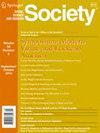可持续生态旅游发展与社区赋权:印度尼西亚 Seloliman 村环境教育中心案例研究
IF 1.4
4区 社会学
Q2 SOCIAL SCIENCES, INTERDISCIPLINARY
引用次数: 0
摘要
以生态旅游为基础的社区赋权模式旨在通过利用自然资源和当地文化价值,促进有机农业植物的种植和可持续生态旅游的发展,从而提高当地农民的地位。本研究的目的是在环境教育中心(PPLH)的协助下,为从事生态旅游的有机农业从业者群体说明社区赋权模式中的现象。本研究采用定性描述法,通过深入访谈、文件分析、焦点小组讨论和实地观察收集数据。分析表明,赋予当地农民权力的成功得益于生态旅游组织的成熟和政治发展。此外,研究结果表明,经济赋权提高了有机稻米的经济价值,从而增强了农民种植有机稻米的兴趣。同时,社会赋权拓宽了农民的视野,培养了他们对变革的开放性,使他们能够在几天的时间里作为生态旅游客人的代理主人进行互动和参与。这项计划对加强农民对利用自然资源和环境的理解和承诺具有重要意义。本研究提出,要持续发展生态旅游,就必须坚定不移地致力于保护环境利益和扩大当地社区的参与。必须坚持以文化方式优先发展可持续生态旅游。本文章由计算机程序翻译,如有差异,请以英文原文为准。
Sustainable Ecotourism Development and Community Empowerment: A Case Study of the Center for Environmental Education in Seloliman Village, Indonesia
The ecotourism-based community empowerment model is designed to uplift local farmers by fostering the cultivation of organic agricultural plants and promoting sustainable ecotourism by utilizing natural resources and local cultural values. This study aims to illustrate the phenomenon within the community empowerment model for groups of organic farming practitioners engaged in ecotourism, as facilitated by the Center for Environmental Education (PPLH) Seloliman, Trawas, Mojokerto Regency. This study uses a qualitative descriptive approach to gather data through in-depth interviews, document analysis, focus group discussions, and field observations. The analysis reveals that the success in empowering local farmers is attributed to the maturity of ecotourism organizations and political development. Furthermore, the research findings indicate that economic empowerment has heightened farmers’ interest in cultivating organic rice due to its enhanced economic value. Simultaneously, social empowerment has broadened farmers’ perspectives, fostering openness to change and enabling them to interact and participate as surrogate hosts for ecotourism guests over a few days. This program carries implications for enhancing farmers’ understanding and commitment to leveraging natural resources and the environment. This study proposes that sustained ecotourism development necessitates a steadfast commitment to preserving environmental benefits and expanding the involvement of local communities. It is essential to uphold a cultural approach prioritizing sustainable ecotourism.
求助全文
通过发布文献求助,成功后即可免费获取论文全文。
去求助
来源期刊

Society
Multiple-
CiteScore
1.30
自引率
11.10%
发文量
132
审稿时长
12 weeks
期刊介绍:
Founded in 1962, Society enjoys a wide reputation as a journal that publishes the latest scholarship on the central questions of contemporary society. It produces six issues a year offering new ideas and quality research in the social sciences and humanities in a clear, accessible style.
Society sees itself as occupying the vital center in intellectual and political debate. Put negatively, this means the journal is opposed to all forms of dogmatism, absolutism, ideological uniformity, and facile relativism. More positively, it seeks to champion genuine diversity of opinion and a recognition of the complexity of the world''s issues.
Society includes full-length research articles, commentaries, discussion pieces, and book reviews which critically examine work conducted in the social sciences as well as the humanities. The journal is of interest to scholars and researchers who work in these broadly-based fields of enquiry and those who conduct research in neighboring intellectual domains. Society is also of interest to non-specialists who are keen to understand the latest developments in such subjects as sociology, history, political science, social anthropology, philosophy, economics, and psychology.
The journal’s interdisciplinary approach is reflected in the variety of esteemed thinkers who have contributed to Society since its inception. Contributors have included Simone de Beauvoir, Robert K Merton, James Q. Wilson, Margaret Mead, Abraham Maslow, Richard Hoggart, William Julius Wilson, Arlie Hochschild, Alvin Gouldner, Orlando Patterson, Katherine S. Newman, Patrick Moynihan, Claude Levi-Strauss, Hans Morgenthau, David Riesman, Amitai Etzioni and many other eminent thought leaders.
The success of the journal rests on attracting authors who combine originality of thought and lucidity of expression. In that spirit, Society is keen to publish both established and new authors who have something significant to say about the important issues of our time.
 求助内容:
求助内容: 应助结果提醒方式:
应助结果提醒方式:


